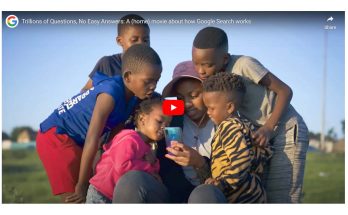“A New Tool Shows How Google Results Vary Around the World”
WIRED, July 11, 2021
Business
By Tom Simonite
“Search Atlas displays three sets of links—or images—from different countries for any search.”
Google’s claim to “organize the world’s information and make it universally accessible and useful” has earned it an aura of objectivity. Its dominance in search, and the disappearance of most competitors, make its lists of links appear still more canonical. An experimental new interface for Google Search aims to remove that mantle of neutrality.
Search Atlas makes it easy to see how Google offers different responses to the same query on versions of its search engine offered in different parts of the world. The research project reveals how Google’s service can reflect or amplify cultural differences or government preferences—such as whether Beijing’s Tiananmen Square should be seen first as a sunny tourist attraction or the site of a lethal military crackdown on protesters.
Divergent results like that show how the idea of search engines as neutral is a myth, says Rodrigo Ochigame, a PhD student in science, technology, and society at MIT and cocreator of Search Atlas. “Any attempt to quantify relevance necessarily encodes moral and political priorities,” Ochigame says.
Ochigame built Search Atlas with Katherine Ye, a computer science PhD student at Carnegie Mellon University and a research fellow at the nonprofit Center for Arts, Design, and Social Research.
Just like Google’s homepage, the main feature of Search Atlas is a blank box. But instead of returning a single column of results, the site displays three lists of links, from different geographic versions of Google Search selected from the more than 100 the company offers. Search Atlas automatically translates a query to the default languages of each localized edition using Google Translate.
Ochigame and Ye say the design reveals “information borders” created by the way Google’s search technology ranks web pages, presenting different slices of reality to people in different locations or using different languages.
About the Author:
Tom Simonite is a senior writer for WIRED in San Francisco covering artificial intelligence and its effects on the world. He once trained an artificial neural network to generate seascapes and is available for commissions. Simonite was previously San Francisco bureau chief at MIT Technology Review, and wrote and edited technology coverage at New Scientist magazine in London. He lives in San Francisco, where he enjoys riding his bike and testing the reactions of prototype self-driving cars.
See also:
- Search Atlas: Visualizing Divergent Search Results Across Geopolitical Borders by Rodrigo Ochigame and Katherine Ye.
- DuckDuckGo (An alternative to Google.) – DuckDuckGo Wikipedia entry.



